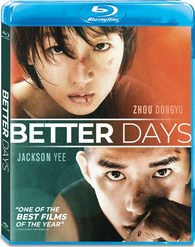The Perfectionistic Escapism Of Time Loop Movies
If it is true that every human fear is rooted in death, then Groundhog Day is the most comforting film of all time.
It follows an ordinary, if unpleasant, man, as he is driven into insanity through the repetition of a single day and eventually circles back into being a good person. With its bland plot, the notoriety of this film comes from one special mechanism: Groundhog Day, and plenty of films since are based on time loops.
Run Lola Run, a time loop-based film from 1998, lets our protagonist try to meet a deadline until she gets it right. Edge of Tomorrow (2014) follows its protagonist as he gains skills over a loop in order to defeat aliens. Source Code — from 2011, and the most exciting film of my young life — uses an explosion-limited loop to solve a mystery.

So far, this has been a well-received trope. And as it would seem, there’s plenty of life left in the concept. Two recent hits, Russian Doll and Palm Springs use the time loop in original and entertaining ways. So why hasn’t it gotten old?
Agency
There is something called a completionist playthrough in video gaming. A player will, having likely beaten a game many times before, try to get every single point, resource, or skill in the entire game. They usually complete every objective in the game, both primary and optional. These players are able to gain such a complete understanding of the game that they can have literally the ultimate satisfaction possible from its completion.
Even without a full completionist run, the very nature of a video game is that a player has as many tries as they need to succeed. There will never be a permanent setback because you can always play the game again.
The time loop in movies provides similar satisfaction. In Groundhog Day, we watch as Phil gains skills, learns about people, and memorizes, godlike, every detail of the day around him. We watch Run Lola Run‘s Lola as she races to beat the clock, something that we know will happen because she has as many tries as she needs.

This is a uniquely satisfying concept because when the protagonist is finally able to move on, one knows with certainty that whatever needed to be done was done fully and satisfactorily. If you’re a compulsive perfectionist, my guess is that you too find a particular relief in this. We play with reality, but we play to win.
Freedom
At its core, the time loop offers a viewer a powerful sense of freedom from death, risk, and social consequences. Despite the usually high-stakes nature of a film featuring this mechanic, the viewer can be satisfied in knowing that no matter what (usually, depending on the specifics of the world), the protagonist isn’t going to die. Moreover, they will face no consequences for their actions as long as such consequences would be permanently undesirable.

Whether a movie uses the time loop to achieve a goal, develop a character, or simply depict interesting alternate realities, the protagonists get to cheat time in a way that many of us doubtless have wished to. We ascend above the confining human experience to try out different actions, relationships, and even personalities. And our protagonists come out the other side doing just fine, able to return to their lives, and only the better for their travels.
The ability to repeat a day or series of events may be less comforting for some than for others, but it allows an undeniable and unique freedom from time. When one can do anything they please with no lasting effects, the fear of death is alleviated. We are offered, vicariously, a small taste of immortality.
Would you enter a time loop if you could? What time loop movies have you seen? Let us know in the comments!
Does content like this matter to you?
Become a Member and support film journalism. Unlock access to all of Film Inquiry`s great articles. Join a community of like-minded readers who are passionate about cinema – get access to our private members Network, give back to independent filmmakers, and more.
Join now!





